We welcome Yasmine Fernine to the project. She will work in the group of Dr. Carolina Marques, at the Chemistry and Biochemistry Department of the University of Évora, on the development of chiral, contorted functional compounds.
We welcome Yasmine Fernine to the project. She will work in the group of Dr. Carolina Marques, at the Chemistry and Biochemistry Department of the University of Évora, on the development of chiral, contorted functional compounds.




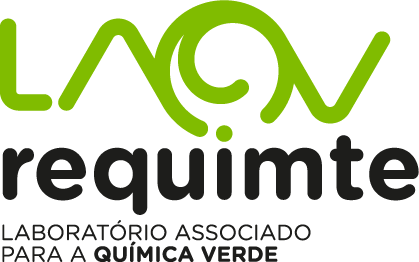
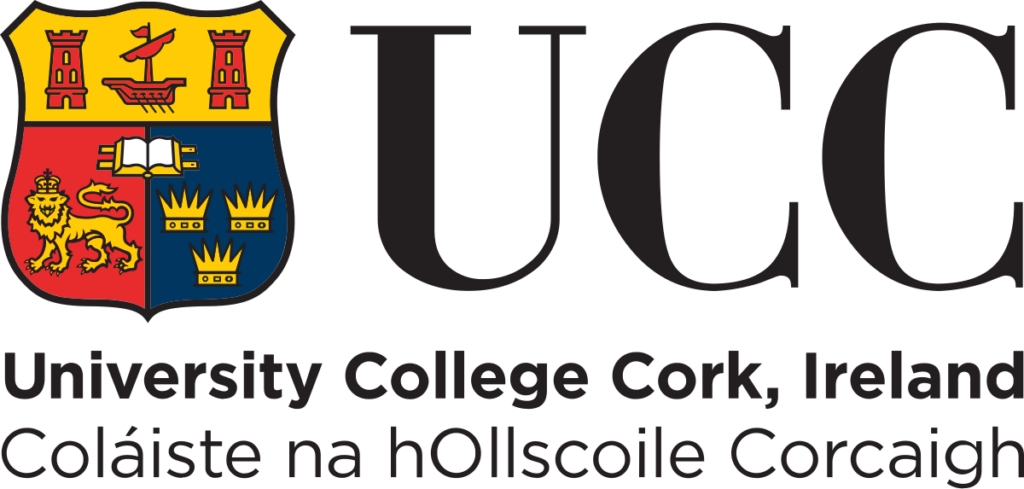
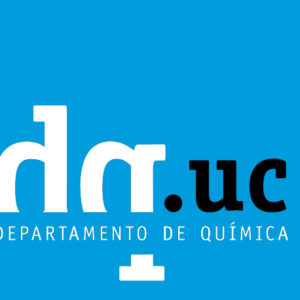
Last updated: September 26, 2025
This Privacy Policy governs the manner in which the project conchimol.com (“the Site,” “we,” “us,” or “our,” operated by the research group coordinated at the University of Coimbra) collects, uses, maintains, and discloses information obtained from users (each, a “User”) of the conchimol.com website.
The Site is designed primarily as an informational resource and, as such, does not include user registration, mailing list sign-up forms, or general contact forms. Consequently, we do not directly collect any Personally Identifiable Information (PII) such as names, email addresses, postal addresses, or telephone numbers from Users accessing the site.
We automatically collect and process certain non-personally identifiable information whenever Users interact with the Site. This information is processed by the Site’s underlying technology platform and analytical service providers.
When you access the Site, our hosting servers (managed by our hosting provider) and the underlying WordPress platform automatically record standard Usage Data and server log information. This data is utilized for maintaining service integrity, diagnosing technical issues, and generating aggregate usage statistics. This data may include, but is not limited to:
The Site utilizes “Cookies”—small data files stored on your device—and similar digital tracking technologies to enhance user experience and facilitate traffic analysis.
Users maintain the right to accept or refuse cookies via their browser settings. Note that disabling cookies may affect the functionality and usability of some elements of the Site.
We utilize external service providers, including the WordPress platform and analytics providers, to operate and maintain the functionality of the Site. These third parties receive access to the automatically collected Usage Data only to the extent necessary to perform their respective services (e.g., website hosting, traffic analysis) and are contractually prohibited from using this data for any other purpose.
We reserve the right to disclose User information if mandated by law or if we believe in good faith that such action is necessary to: (i) comply with a legal obligation; (ii) protect and defend the rights or property of the ConChiMOL project or the University of Coimbra; (iii) prevent or investigate possible wrongdoing in connection with the Site; or (iv) protect the personal safety of Users or the public.
While we implement commercially reasonable security measures to protect the integrity of the Usage Data collected, please be aware that no electronic transmission or storage method is entirely secure. The automatically collected data may be stored and processed on servers maintained by our hosting and service providers, which may be located outside of Portugal or the European Union.
This Site is intended for an academic and professional audience and is not directed at individuals under the age of 13. We do not knowingly collect PII from anyone under this age. If a parent or guardian becomes aware that a Child has provided us with any data, they should contact us immediately at the details provided in Section 6.
For any inquiries, requests, or concerns regarding this Privacy Policy, the data practices of the Site, or the exercise of your data protection rights, please contact the coordinating principal investigator using the following official contact methods:
ConChiMOL Project Coordination
Anthony Joseph Burke
Faculty of Pharmacy,
Pharmaceutical Chemistry
Laboratory University of Coimbra,
Pólo das Ciências da Saúde
Azinhaga de Santa Comba,
3000-548 Coimbra, Portugal
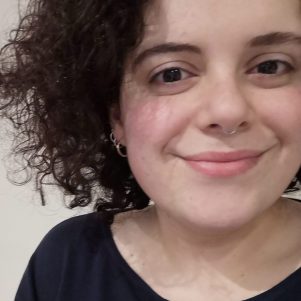
Cláudia Alves holds both an MSc and Bsc degree in Medicinal Chemistry from the University of Coimbra, Portugal. During her studies, she focused on the synthesis of new organocatalysts and the asymmetric Neber reaction in the synthesis of novel 2-(tetrazol-5-yl) 2H-azirines. Subsequently she worked as a fellow researcher on the VinylGreen project and was awarded a scholarship from the MedChemTrain doctoral program to persue her PhD at the Coimbra Chemistry Centre – Institute for Molecular Structure, Chemistry Department, University of Coimbra. In 2023 she also worked as a fellow researcher for the Resfinas project and currently, works as a researcher for the ConChiMol project (replacing Dr. Vítor Almodôvar), where she is developing new organic semiconductors for electronic devices, such as OLEDs and OTFTs.
Ciência ID: 4D18-3704-986C
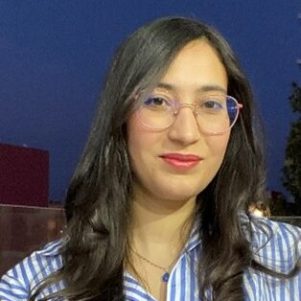
Yasmine Fernine completed her Ph.D. in Applied Physical Chemistry at the Materials and Environmental Engineering Laboratory, University of Sidi Mohamed Ben Abdallah in Fez, Morocco. With over 22 papers published in international journals and an H-index of 12, her research focuses on synthesizing, characterizing, and evaluating organic and inorganic compounds for inhibiting metal corrosion in aggressive environments using electrochemical methods and theoretical DFT studies. Her academic journey includes a Baccalaureate in Physical Sciences in 2012, a Bachelor’s degree in Chemistry specializing in Physics-Chemistry of Materials (2016), a professional degree in Industrial Chemistry (2017), and a Master’s degree from the Faculty of Sciences in Kenitra (2019). Yasmine actively participated in research projects, including one at Universidade de Aveiro, Portugal, where she studied Green Synthesis and Characterization of Gold and Silver Nanoparticles Using Plant Extracts and investigated Surface-enhanced Raman Scattering for detecting Benzylpenicillin in water.
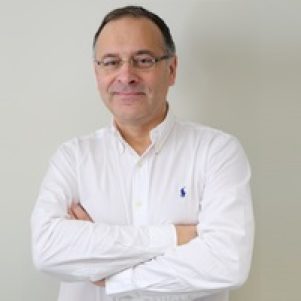
Rui M. M. Brito holds a BSc (Licenciatura) in Biochemistry from the University of Coimbra, a PhD in Biochemistry from Rice University, Houston, USA, and carried out post-doctoral studies at Oxford University, UK under the guidance of Prof. Christopher Dobson. He has been a visiting scientist at the University of Cincinnati (USA) in the group of Prof. Paul Rosevear, the Johns Hopkins University (USA) in the group of Prof. Ernesto Freire, and at the Leibniz-Institut für Molekulare Pharmakologie (FMP), Berlin, Germany, in the group of Prof. Hartmut Oschkinat. Currently, he is an Associate Professor of Biological Chemistry at the University of Coimbra (UC), principal investigator of the Coimbra Chemistry Center – Institute of Molecular Sciences, and coordinator of the Nuclear Magnetic Resonance (NMR) spectroscopy facility at UC (UC-NMR) (www.uc.pt/uc-nmr/). He is co-founder and the CSO of the spin-off biotech company BSIM Therapeutics (www.bsimtx.com).
Rui Brito has been the Principal Investigator of multiple research projects, attracting to the University of Coimbra more than 3.5 M € in the last 10 years. He has supervised or co-supervised 10 PhD students, has published 90 papers in peer-reviewed international journals with close to 3000 citations, and is an inventor in 3 USA patents and 1 European patent.
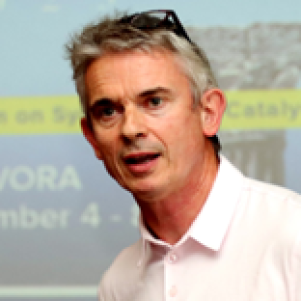
Anthony Burke is an associate professor of Pharmaceutical Chemistry at the Faculty of Pharmacy University of Coimbra and a Chemistry Europe fellow. He has a PhD from University College Dublin and conducted post-doctoral research in Oxford (Dyson Perrins Lab) and ITQB, Portugal. He moved to the University of Coimbra in early 2022. He has over 150 works (includes books, book chapters, papers, patents, editorials and oral presentations etc) and has coordinated many projects. He was the vice-president of the organic chemistry division of the Portuguese Society of Chemistry between 2011-2013, founded Chiratecnics Ltd (www.chirarecnics.com) in 2009, is the chairman of the International Symposium on Synthesis and Catalysis series (ISySyCat15, ISySyCat17, ISySyCat19, ISySyCat21, ISySyCat23 and the forthcoming ISySyCat25) and is an associate editor for Frontiers in Chemistry – Medicinal and Pharmaceutical Chemistry and an editorial board member of Chemistry Open (De Gruyter). He has been a visiting professor at the University of Milan, University of Kyoto, Instituto Superior Tecnico-University of Lisbon, Boehringer Ingelheim (Connecticut, USA) and others. He has extensive experience in synthesis and catalysis. He has been an evaluator of several international and national grant applications. He has coordinated several national and international projects in the past and is the coordinator of the ConChiMol project
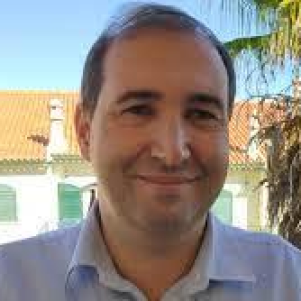
Luís Branco is an assistant professor at at the Department of Chemistry, Faculty of Science and Technology New University of Lisbon and a member of the Associate Laboratory for Green Chemistry (REQUIMTE). His interests lie in the area of clean energy technologies, as well as materials that can enable new technologies. Recently, his group has worked on areas such as redox flow batteries (RFBs), lithium ion batteries (LIBs), organic light-emitting diodes (OLEDs), organic semiconducting laser diodes (OSLDs), reticular frameworks (e.g., MOFs, COFs), catalysis, electrocatalysis (e.g., OER), sodium ion batteries (SIBs), thermoelectrics (TE), 2D materials, and photovoltaic devices (PVs). The group also develops computational tools to produce, manage, and store large amounts of data from calibrated electronic calculations, allowing rapid navigation of the chemical space. He is interested in machine learning methods, like for example, the development of generative models and
genetic algorithms for inverse design of molecules and materials, which allow a smart search of the chemical space based on desired properties/functionalities. These approaches are used for the optimization of experimental properties. His group also uses automated robotic
platforms (such as our Chemspeed system) to operate in a closed-loop approach for the synthesis of new materials.
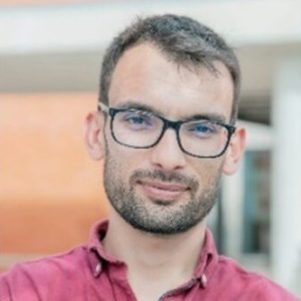
Vítor A. S. Almodôvar completed his BSc in Biochemistry and MSc in Chemistry (specialization in Materials Chemistry), both at University of Évora. He was then awarded a scholarship to work on the synthesis of new diketopyrrolopyrroles derivatives for application in DSSCs, in the Chemistry Department at the University of Aveiro and the Associate Laboratory for Green Chemistry (REQUIMTE). Due to his interest in this field, he enrolled as a PhD student in Chemistry at the University of Aveiro and won a Fulbright scholarship to study the synthesis and structural/photophysical characterization of diketopyrrolopyrroles for technical and biological applications.
Ciência ID: 2214-EE41-C3A2
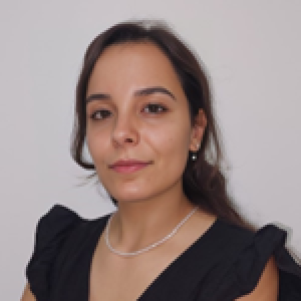
Ana Catarina Amorim holds both an MSc and a BSc degree in biochemistry from the University of Évora, Portugal. During her studies, she focused on synthesizing novel 1,2,3-triazoles using innovative synthetic methods and also developed novel catalytic techniques for accessing biologically active heterocyclic compounds. Subsequently, she worked as a contracted researcher on the NAUTILUS project and at ChiraTecnics (www.chiratecnics.com). In 2022, she was awarded a scholarship from the Fundação para a Ciência e a Tecnologia to pursue her PhD at the Coimbra Chemistry Centre – Institute for Molecular Structure, Chemistry Department, University of Coimbra. Currently, as part of her PhD research and as a member of the ConChiMol project, she is developing new organic semiconductors for electronic devices, namely OLEDs and OTFTs.
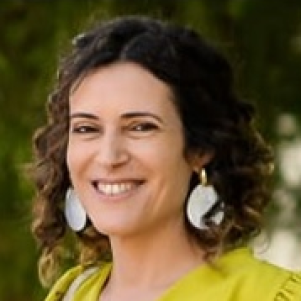
Sandra Gago is an assistant Researcher within the Cultural Heritage and Responsive Materials” group (CHARM) of the Associated Laboratory for Green Chemistry, in the Chemistry Department at the New University of Lisbon. She has published 71 papers in international peer review journals and 2 chapters in books and 1 patent. She has supervised several post-graduate and undergraduate students. She participated in 7 funded projects as team member and was Co-PI of an Exploratory Research Project “Eutectic Systems as sustainable electrolytes for energy storage” under the MIT Portugal Program (call 2021). Her research interests comprise design and characterization of new functional materials based on mesoporous silica and magnetic nanoparticles, inorganic/organometallic complexes and pharmaceutical ionic liquids for different applications: electrochromic/photochromic devices, (photo)catalysis and drug delivery.
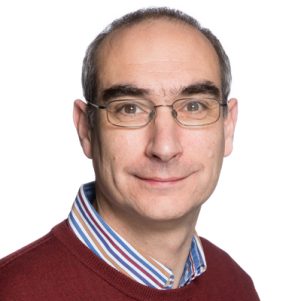
Simon Lawrence obtained his BSc and PhD from Durham University. After post-doctoral positions at the University of Manchester and Imperial College London he moved to University College Cork where he is a lecturer in inorganic and materials chemistry. His research interests are in the understanding of the organic solid state where he leads a group investigating issues such as crystal engineering, crystallisation, polymorphism, co-crystallisation and crystal growth. He was Chair of the COST Action CM1402 on “From molecules to crystals – how do organic molecules form crystals? (Crystallize)” from 2015-2018. He contributes his expertise in single crystal diffraction to this project.
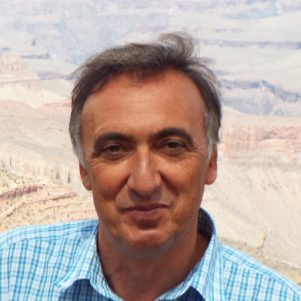
Henrique Leonel Gomes is as Associate Professor in the Department of Electrical and Computer Engineering at Coimbra University. He heads the Organic Electronics and Bioelectronics research group. His research interests have been directed towards the electrical characterisation of electronic devices. He has a recognized experience in small signal impedance measurement techniques. In the field of organic electronics, key contributions include: (i) studies of gate bias stress in organic transistors, (ii) systematic investigation of polymer Schottky diodes and understanding their ac small signal response through equivalent circuit modelling and (iii) studies of resistive switching on polymer-based memory devices (plastic-RRAMs). Since 2000, his research activities have expanded to encompass the interaction between electronic devices and living cells to develop bioelectronic and biomedical devices
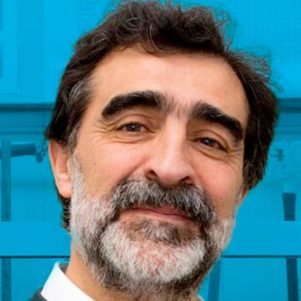
Jorge Morgado is a Professor of Biomaterials, Nanotechnology and Regenerative Medicine at the Bioengineering Department of Instituto Superior Técnico-University of Lisbon and head of the organic electronics group-Lisbon at the Institute for Telecommunications – Lisbon. His research activities are focused on the synthesis, characterisation and applications of electro- and photoactive organic materials for organic electronics and bioelectronics, namely in the development of conductive scaffolds for stem cell culture. He has published around 170 papers and three book chapters. He also has been involved in many projects, both at national and european levels.
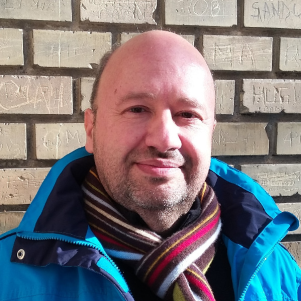
João Paulo Prates Ramalho obtained his PhD in physical chemistry at Lisbon University in 1995, with a thesis entitled “Feynman path integrals in Statistical Mechanics – Numerical methods and applications”. He is currently an associate Professor at the University of Evora (since 2005). He was a visiting researcher at the Max Planck Institute für Festkörperforschungd (Stuttgart), Institut de Quimica Teorica i Computacional (University of Barcelona), Department of Chemical Engineering (University of Edinburgh), and Department of Biomolecular Physics (University of Cluj-Napoca, Romania). His scientific activity has been focused on different fields of theoretical/computational chemistry and has authored more than one hundred publication. He is the deputy coordinator of the ConChiMol project.
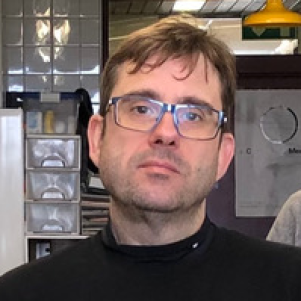
Hugo Cruz has a degree in Industrial Chemistry (University of Coimbral) and a PhD in Chemistry-Electrochemistry (Universitat Autònoma Barcelona). He is currently a researcher at the Department of Chemistry, Faculty of Science and Technology New University of Lisbon and at the Associate Laboratory for Green Chemistry (REQUIMTE). He has published 30 papers in international journals and is also co-author of 1 European and 1 National patent. He is/was involved in a number of international and national projects, and has supervised several post-graduate students. His back-ground is in the field of energy, specifically regarding alternative electrolytes based on RTILs and Deep Eutectic Solvents for application in ECDs, solar cells, batteries and supercapacitor devices, and also in storage and production of H2 and O2.
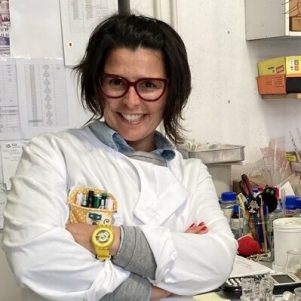
Carolina Marques graduated in Chemistry (2005) from the University of Évora, and obtained her MSc in Applied Chemistry (2007) and PhD in Chemistry (2013) from the same university. She has been a research fellow in the Burke group, working on asymmetric synthesis and in the group of Professor Carlos Afonso group (IST-UL) working with ionic liquids. Currently she is a contracted researcher (and integrated member) at the Associate Laboratory for Green Chemistry (REQUIMTE) working in the field of medicinal chemistry. Her current research interests are in drug discovery and development for cancer therapy through sustainable synthetic techniques and evaluation of new asymmetric reactions to access interesting chiral molecules.
Ciência ID: 7B1F-9EA8-30BA